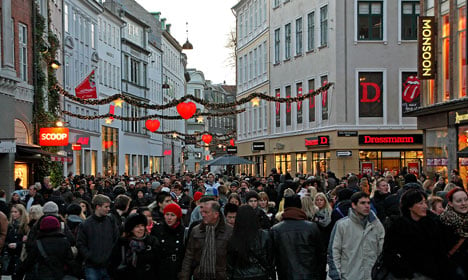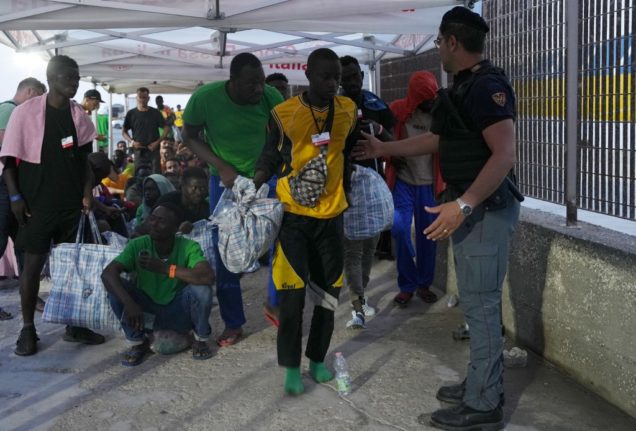IMMIGRATION
Half of Danish resident permits go to EU citizens
Turks are still the largest group of immigrants in Denmark but Poles and Romanians are the fast-growing groups, according to a new OECD report.
Published: 1 December 2014 14:26 CET

The number of resident permits went up in 2013 after five straight years of decline and half of them went to EU citizens. Photo: Colourbox
An OECD report released on Monday shows that for the first time in over a decade, the EU has fallen behind the US as a destination for immigrants. The study finds that the prolonged economic downturn has tarnished the EU's allure among those looking to improve their lives.
“Countries would benefit more from immigration if they consider migrants as a resource rather than a problem, and integration policies as an investment,” said OECD Secretary-General Angel Gurria, launching the International Migration Outlook 2014 report in Paris.
Just over 52,000 migrants settled in Denmark last year, a 20 percent increase over 2012 and an increase of 73 percent since 2007.
The largest group of immigrants in Denmark continues to be persons of Turkish origin, who make up 9.8 percent of all immigrants and their descendants. The next largest groups are Poles (5.8%), Germans (5.1%) and Iraqis (4.9%), while the fasting growing groups are Romanians and Poles.
The number of resident permits granted by Denmark was up in 2013, ending five years of steady decline. Of the 64,600 residence permits granted in 2013, 50 percent went to EU/EEA citizens
According to the OECD, nearly 30 percent of Denmark’s foreign-born residents in 2013 are highly-educated, which the organisation says is in line with global trends. The OECD says that the number of highly-educated immigrants has increased by 70 percent since 2000 and that today just over 30 percent of all immigrants to OECD countries are university-educated.
In many cases however those educations are not being put to use in the migrants’ new countries, with the OECD reporting that immigrants are more than 50 percent more likely than natives to be over qualified for their jobs. That gap is even more pronounced in Denmark, where 28 percent of the foreign-born population is overqualified for their jobs, compared to just 11 percent of the native-born population.
In absolute terms, Germany is the biggest magnet in Europe for immigrants. During 2013, migration to Germany recorded a double-digit increase to over 450,000 people, its fourth consecutive annual rise. Three-quarters of all immigrants received by Germany are from other EU countries, making the country the second destination in the OECD, after the United States.
Overall the largest source country for immigrants was China, with nearly ten percent of all immigrants, followed by Romania (5.6 percent) and Poland (5.4 percent).
The number of asylum seekers in the OECD area rose by 20 percent, with most coming from Syria. Per capita, the largest host country for refugees was Sweden.
“Migration policies should be a priority for OECD countries, and integration policies should be seen as the best possible investment in terms of growth, social cohesion and well-being,” said Gurria.
“The short and long-term costs of standing still in the face of rapidly changing needs are high. Policy makers need to lead an open and informed debate to build confidence and ensure everyone benefits,” he added.
Url copied to clipboard!


 Please whitelist us to continue reading.
Please whitelist us to continue reading.
Member comments